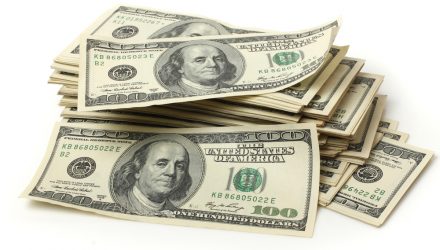News that the federal government could run out of money soon is dominating headlines. That’s leaving advisors concerned about what this means for their investments.
Stubbornly high inflation, interest rates, and the potential implications for growth were already top of mind for advisors. The U.S. potentially defaulting on debt payments is the latest news jockeying for a position top of mind. Kristof Gleich, president and CIO at Harbor Capital Advisors, said this during a webinar for investors at market close on May 10, 2023.
“It’s causing some noise,” Gleich said. “But the way the market sort of seems to be perceiving it at the moment is, the old saying is fool me once, shame on you; fool me twice, shame on me. Given what happened in 2011, the market ultimately thinks that something’s going to be figured out,” Gleich said.
What Should Advisors Do if the Treasury Runs Out of Cash?
Jake Schurmeier, portfolio manager of multi-asset solutions at Harbor, said the firm’s recommendation is to look through this despite expectations of increased volatility. Retaining current allocations based on the fundamental trajectory of the economy, and tuning out if the Fed runs out of cash, may be a favorable position for advisors.
“The point of a deadline in some ways is to force people to the table. We’re going to run up against that deadline because no one wants to blink; everyone wants to retain their leverage,” Schurmeier said. “So, we’d expect this to continue towards June 1. And to be an ongoing source of volatility and headlines. But we don’t think this is going to have a material effect on the outlook going forward.”
Maintaining a Defensive Poisition
Schurmeier said Harbor Capital has maintained a defensive position. The firm thinks the cumulative effects of Fed rate increases and banking stress will result in the labor market beginning to weaken. Ultimately, the weakening labor market will weigh on equity returns and the overall economy.
Year-over-year earnings growth in the S&P 500 has dipped into negative territory, and Harbor Capital expects that it’s going to decline further in the quarters to come.
“We think fixed income offers a very attractive alternative, with yields around 5%. Investment grade yields are well above that, and high yield even further,” Schurmeier said. “We think there’s an attractive quality source of income that you can receive, unlike much of the past, post-financial crisis period, and so we’re overweight fixed income relative to equity risk.”
For more news, information, and analysis, visit the Market Insights Channel.
Important Information
The views expressed herein are those of Harbor Capital Advisors, Inc. investment professionals at the time the comments were made. They may not be reflective of their current opinions, are subject to change without prior notice. They should not be considered investment advice. The information provided in this presentation is for informational purposes only.
This material does not constitute investment advice and should not be viewed as a current or past recommendation or a solicitation of an offer to buy or sell any securities or to adopt any investment strategy.
Investing entails risks, and there can be no assurance that any investment will achieve profits or avoid incurring losses.
The S&P 500 Index is an unmanaged index generally representative of the U.S. market for large capitalization equities. This unmanaged index does not reflect fees and expenses and is not available for direct investment.
This article was prepared as Harbor Funds paid sponsorship with VettaFI.
Harbor Capital Advisors, Inc.

